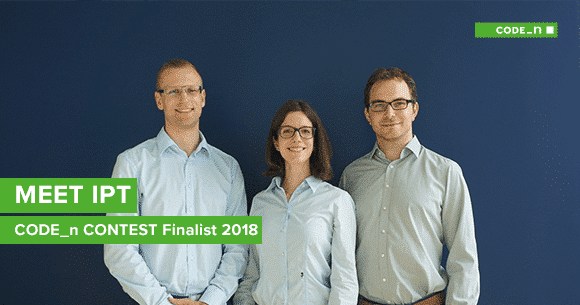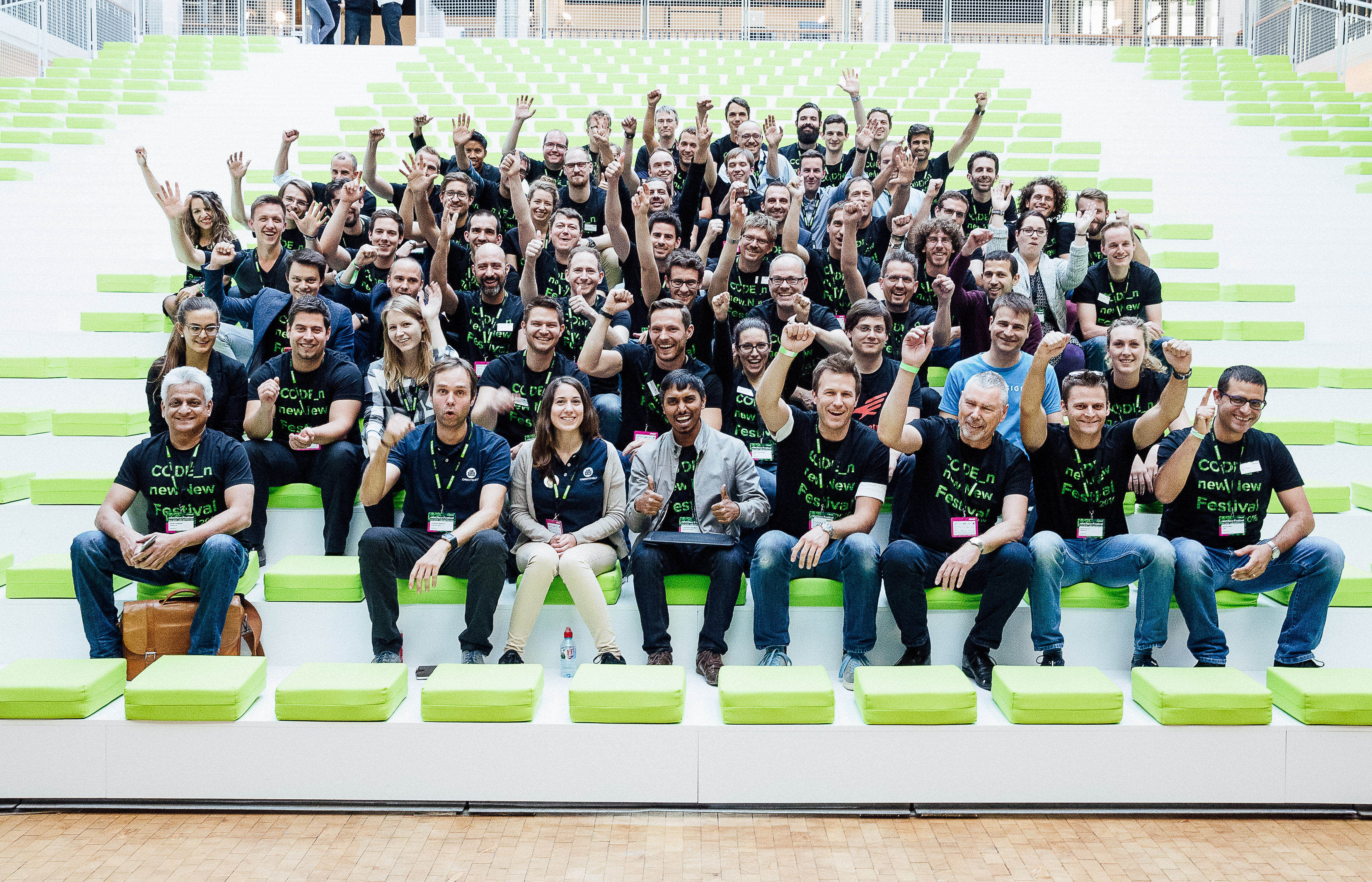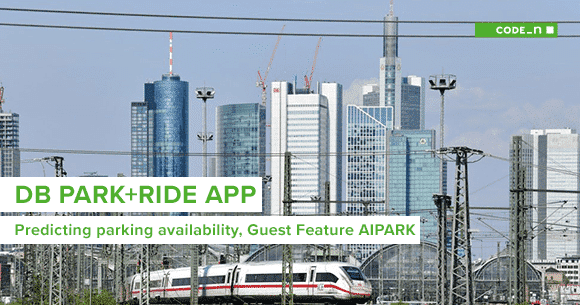MEET OUR CODE_N CONTEST FINALISTS 2018: IPT from Germany

We’re excited to introduce CODE_n CONTEST Finalist IPT who created the IPT.Stack, a software that empowers engineers to combine their human experience with AI and data to optimize manufacturing processes. Predicting ideal process parameters in real time allows companies using the IPT.Stack to significantly reduce process times, waste, and rework costs. In this interview Theo Steininger, managing director and co-founder, explains how their solution helps companies become even more competitive on the global market.
Jessica: What is IPT all about?
Theo: Our software product, the IPT.Stack, empowers engineers to combine their human experience with artificial intelligence to optimize manufacturing processes. It uses formalized human expertise and machine data to predict optimal process parameters. In doing so, the IPT.Stack significantly reduces reworking and rejects.
The novel approach taken by the IPT.Stack is to combine process data and human expertise which has been abstracted in a special way. This expert knowledge is entered into the IPT.Stack in such an intuitive manner that even with no more than a little training, no help from external consultants or data scientists is required. This decouples IPT from the traditional consulting business. The statistical methods that make this possible are based on the state-of-the-art scientific research that my colleagues Isabell Franck, Maksim Greiner, and I pursued during our PhDs. This field of research is developing rapidly, but IPT still currently has an approximately three-year head start on the competition.
Jessica: How did you come up with the idea?
Theo: Scientific methods based on Bayesian Inference have, until now, not been applied extensively in the production industry. Except for scientific and university research contexts, these methods are new to engineering, even though they can offer the perfect solution to many existing problems. As a PhD student, I realized this potential during intense discussions with people from the manufacturing industry. Maksim (my PhD colleague), Isabell (my former co-scholarship holder at the Bavarian EliteAcademy) and I formed a team with complementary skills to implement our idea of a system that predicts optimal robot and machine parameters in real time. Based on this collaboration, we developed the IPT.Stack software.
Jessica: What are you trying to solve?
Theo: Controlling production processes is one of the biggest challenges in the modern manufacturing industry. Today’s manufacturing processes are highly complex due to the influence of several hundred parameters and the need to react dynamically to the changing production environment. Engineers are currently not able to manually adjust their processes in an optimal fashion. At present the processes provide inconsistent data which is insufficient for ordinary automated optimization tools. Or in the case of production lines, even if data is available after an often long waiting period, the production process has usually already changed again. So as a compromise processes are often adjusted statically, which results in unnecessarily high reject rates, process times, and rework costs. The IPT.Stack solves this problem by predicting optimal robot and machine parameters based on statistical calculations in real time. This lets IPT increase production quality, reduce the number of faulty products – and therefore costs – and increase process stability.
Jessica: AI is seen as a differentiator. As a young startup, how do you leverage the IPT.Stack benefits to potential customers? Does IPT help German manufacturers stay competitive on a global market with competitors from low-cost countries?
Theo: The IPT.Stack provides you with the optimal production parameters for each workpiece individually. This allows the system to be perfectly adjusted with respect to the optimization goal. Besides overall production quality and the corresponding reduction in reworks and scrap, possible optimization targets can be process costs (e.g. due to energy consumption) or production speed. The IPT.Stack reacts immediately to changes in the production process. This increases the stability of the process; when a new plant is commissioned, this means shorter ramp-up times. In the case of existing production processes, this often means that the IPT.Stack makes many different production settings possible in the first place. With the help of the IPT.Stack, human expertise is stored in a formalized form and is no longer lost, since it is no longer linked to individual employees. This makes our customers more independent of the increasingly rapid turnover in highly skilled staff. As a result, companies using the IPT.Stack will be even more competitive on the global market, because we help our customers – the process experts – do their jobs better and faster and address their worries. At the same time, we make it possible to produce goods to a degree of perfection that was previously impossible. This helps German manufacturers to stay competitive on a global market by excelling from the mass-market.
Jessica: Thank you for the interview, Theo!
Meet IPT at the new.New Festival 2018 this fall, in Stuttgart!







Write a comment